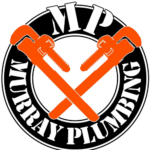Plumbers rely on their trucks as mobile workshops. Each truck carries specific equipment to help complete jobs efficiently. This article will explain the essential equipment found in a plumber’s truck. It will help readers understand the tools that allow plumbers to work quickly and accurately.
- Hand Tools Plumbers use hand tools daily. Each tool has a specific purpose.
- Pipe Wrenches: Used for tightening and loosening pipes.
- Adjustable Wrenches: Useful for gripping and turning nuts and bolts.
- Screwdrivers: Both flathead and Phillips are necessary.
- Pliers: Channel lock pliers, needle nose pliers, and tongue-and-groove pliers help with gripping and turning.
- Hacksaws: Used to cut metal and plastic pipes.
- Tubing Cutters: These allow precise pipe cutting.
- Tape Measures: Measuring lengths accurately is crucial.
- Power Tools Power tools save time and effort.
- Power Drills: Used for making holes and securing fasteners.
- Reciprocating Saws: Good for cutting through thick materials.
- Drain Augers (Electric): Used to clear tough drain clogs.
- Portable Wet/Dry Vacuums: Helpful for cleaning up water spills and debris.
- Pipe and Drain Cleaning Equipment Plumbers often clear blockages. These tools make that job easier.
- Manual Drain Snakes: Used for minor clogs.
- Electric Drain Cleaners: Handle bigger and tougher clogs.
- Hydro Jet Machines: Use high-pressure water to clean pipes.
- Diagnostic Equipment Accurate diagnostics help plumbers identify problems quickly.
- Inspection Cameras: These cameras check inside pipes.
- Leak Detection Equipment: Detects hidden water leaks.
- Pressure Gauges: Measures water pressure.
- Safety Gear Safety is important on every job.
- Gloves: Protect hands from sharp objects and chemicals.
- Safety Glasses: Keep eyes safe from debris.
- Hard Hats: Needed at construction sites.
- Knee Pads: Help reduce strain during work.
- Work Boots: Offer foot protection and grip.
- Plumbing Supplies Plumbers carry extra materials to complete jobs without delays.
- PVC Pipes and Fittings: Common in residential plumbing.
- Copper Pipes and Fittings: Used for water supply lines.
- Pipe Insulation: Helps protect pipes from freezing.
- Pipe Dope and Thread Tape: Seals pipe connections.
- Hose Bibs and Valves: Replacements for broken parts.
- Gaskets and Washers: Essential for leak-proof connections.
- Fasteners and Connectors These items help secure pipes and fixtures.
- Nuts, Bolts, and Screws: Various sizes are needed.
- Pipe Clamps and Straps: Hold pipes in place.
- Brackets and Hangers: Support pipe installations.
- Ladders and Step Stools Plumbers often work at heights.
- Ladders: Allow access to ceiling pipes.
- Step Stools: Helpful for smaller height adjustments.
- Soldering Equipment Soldering is common for joining metal pipes.
- Torches: Heat pipes for soldering.
- Solder and Flux: Materials for secure pipe joints.
- Heat Shields: Protect surroundings from torch heat.
- Caulking and Sealing Tools Sealing is necessary for water-tight finishes.
- Caulking Guns: Used to apply sealants.
- Silicone Sealant: Seals gaps and joints.
- Water Testing Equipment Testing ensures safe drinking water.
- Water Test Kits: Check for contamination.
- pH Meters: Measure acidity levels.
- Organizational Systems A tidy truck saves time.
- Shelving and Drawers: Keeps tools in order.
- Toolboxes: Hold smaller tools.
- Bins: Store fasteners and fittings.
- Communication Devices Plumbers need to stay in contact with clients and teams.
- Smartphones: Essential for calls and messages.
- Tablets or Laptops: Used for invoicing and work orders.
- Paperwork and Documentation Plumbers handle paperwork on-site.
- Work Order Forms: Document job details.
- Manuals and Code Books: Reference for building codes.
- Invoices and Receipts: For billing clients.
- Cleaning Supplies Cleaning after the job is part of good service.
- Rags and Towels: Wipe surfaces clean.
- Disinfectants: Sanitize work areas.
- Trash Bags: Collect waste and debris.
Conclusion A plumber’s truck is well-stocked with essential equipment. Each tool and supply helps complete jobs efficiently. The combination of hand tools, power tools, diagnostic devices, and safety gear ensures plumbers can handle most tasks on-site. Good organization and preparation allow plumbers to serve clients well and finish jobs quickly.
